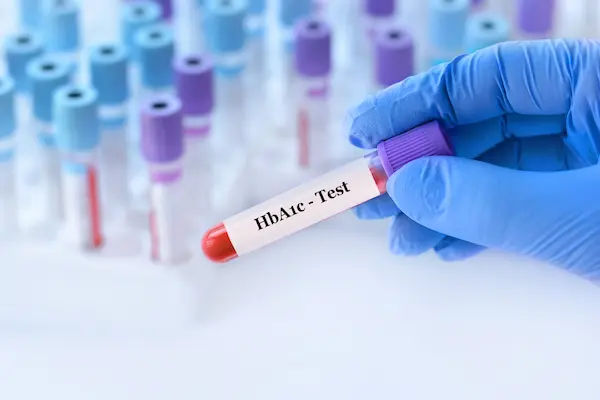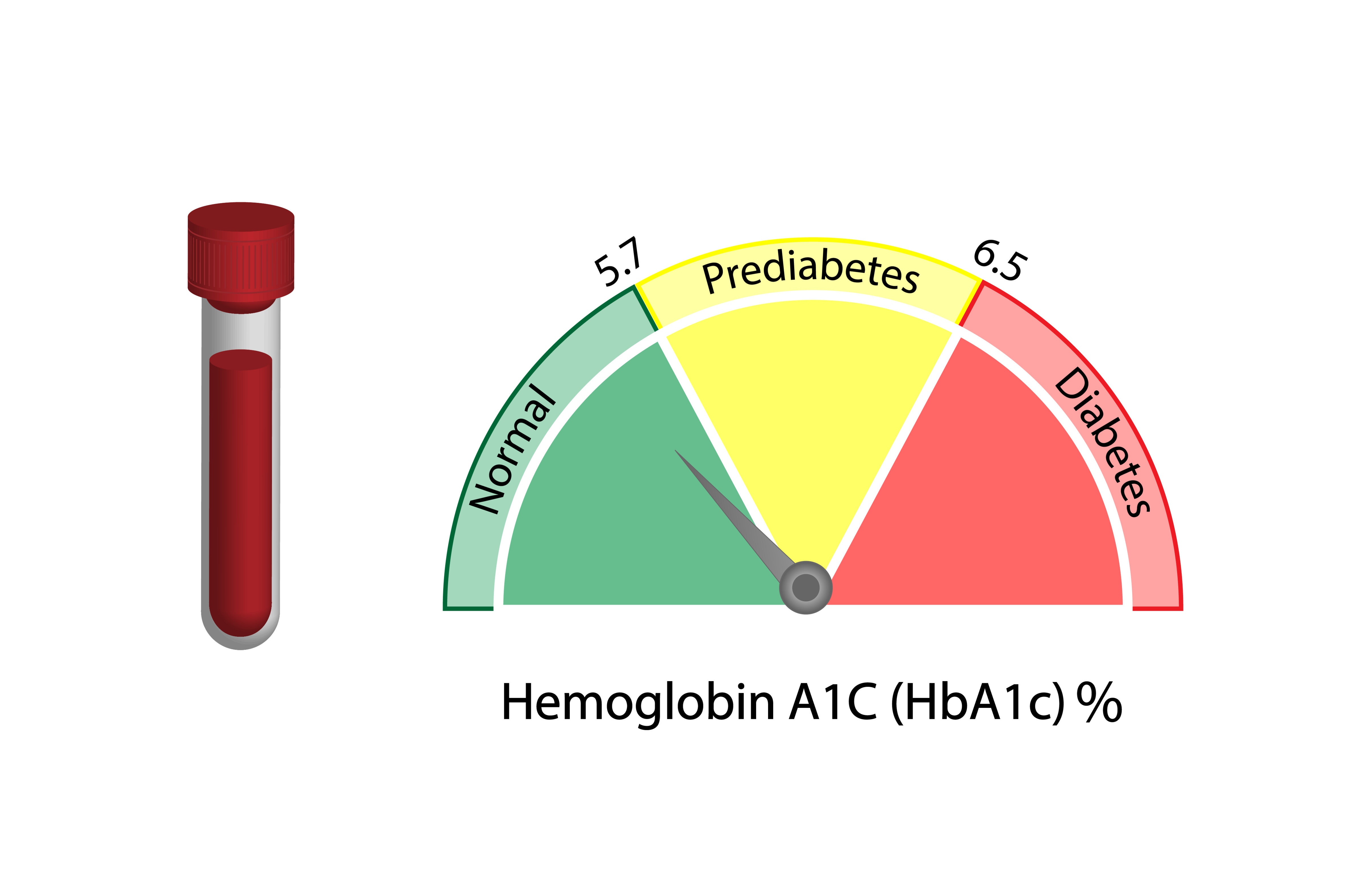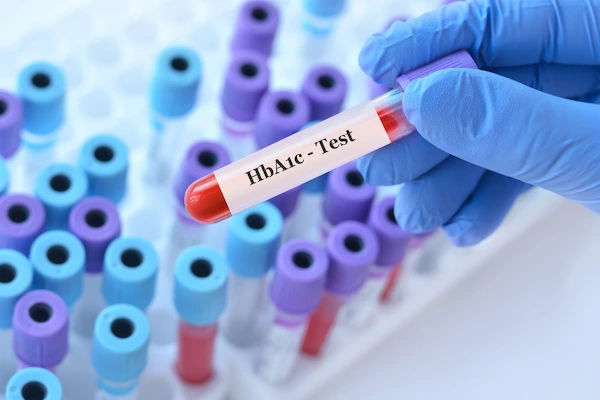Glycosylated Hemoglobin Levels and Normal Range
Learn about glycosylated hemoglobin (HbA1c), its role in monitoring long-term blood sugar levels, and the normal range. Understand how HbA1c testing helps manage and diagnose diabetes effectively.

Written by Dr. M L Ezhilarasan
Reviewed by Dr. Rohinipriyanka Pondugula MBBS
Last updated on 13th Aug, 2025

Managing diabetes or monitoring blood sugar levels can be overwhelming, but understanding Glycosylated Hemoglobin (HbA1c) can make it easier. This simple blood test provides valuable insights into your long-term blood sugar control. Let’s break it down in simple terms so you can take charge of your health confidently.
What is Glycosylated Hemoglobin (HbA1c)?
Hemoglobin is a protein in your red blood cells that carries oxygen. When sugar (glucose) in your blood sticks to hemoglobin, it forms glycosylated hemoglobin (HbA1c). The higher your blood sugar levels over time, the more glucose attaches to hemoglobin.
The HbA1c test measures the percentage of hemoglobin coated with sugar, giving an average of your blood sugar levels over the past 2-3 months. Unlike daily glucose tests (finger-prick tests), which show your sugar levels at a single moment, HbA1c provides a broader picture of how well your diabetes is being managed.
Why is HbA1c Important?
- Long-term Diabetes Control – Helps assess if your treatment plan (diet, exercise, medications) is working.
- Early Detection of Prediabetes – Identifies high blood sugar before diabetes develops.
- Reduces Risk of Complications – Keeping HbA1c in check lowers the risk of heart disease, kidney damage, nerve problems, and vision loss.
Normal HbA1c Levels
The normal range varies slightly depending on health conditions, but generally:
| HbA1c Level (%) | Interpretation |
|---------------------|-------------------|
| Below 5.7% | Normal (Healthy blood sugar control) |
| 5.7% - 6.4% | Prediabetes (Higher risk of developing diabetes) |
| 6.5% or higher | Diabetes (Diagnosis confirmed) |
For people with diabetes, the target HbA1c is usually below 7%, but your doctor may adjust this based on age, other health conditions, and risk factors.
Symptoms of High HbA1c (Poor Blood Sugar Control)
If your HbA1c is high, you might experience:
- Increased thirst and frequent urination
- Fatigue and blurred vision
- Slow-healing wounds
- Tingling or numbness in hands/feet (nerve damage)
- Frequent infections
What Causes High HbA1c?
Several factors can raise your HbA1c levels:
- Uncontrolled diabetes (not taking medications properly)
- Poor diet (high in sugar and refined carbs)
- Lack of exercise (sedentary lifestyle)
- Stress and illness (can temporarily spike blood sugar)
- Certain medications (like steroids)
How to Lower HbA1c Naturally
If your HbA1c is high, don’t worry—small changes can make a big difference!
1. Eat a Balanced Diet
- Choose whole grains, vegetables, lean proteins, and healthy fats.
- Avoid sugary drinks, processed snacks, and excessive carbs.
- Try portion control to prevent blood sugar spikes.
2. Stay Active
- 30 minutes of walking, swimming, or yoga daily helps lower blood sugar.
- Strength training improves insulin sensitivity.
3. Monitor Blood Sugar Regularly
- Check fasting and post-meal glucose levels as advised by your doctor.
- Keep a log to track patterns.
4. Take Medications as Prescribed
- If you have diabetes, follow your doctor’s advice on insulin or oral medications.
5. Manage Stress & Sleep Well
- Stress raises blood sugar—practice meditation or deep breathing.
- Aim for 7-8 hours of sleep to help regulate glucose.
When Should You Get Tested?
- If you have diabetes: Every 3-6 months (as recommended by your doctor).
- If you’re prediabetic or at risk: Annual testing.
- If you have symptoms like excessive thirst, fatigue, or frequent infections.
Book Your HbA1c Test with Apollo 24|7
Worried about your blood sugar levels? Apollo 24|7 makes it easy to get tested from the comfort of your home or at a nearby lab. Call now or book online to schedule your HbA1c test and consult with a diabetes specialist for personalized advice.
Get Your Health Assessed
Final Thoughts
Your HbA1c level is a powerful tool in managing diabetes and overall health. By making small, consistent changes in diet, exercise, and medication adherence, you can keep your blood sugar in check and reduce complications. If you’re unsure about your levels or need guidance, don’t hesitate to reach out to a healthcare professional.
Consult a Top Specialist
Consult a Top Specialist

Dr. Siri Nallapu
General Practitioner
5 Years • MBBS
Hyderabad
Apollo 24|7 Clinic, Hyderabad

Dr. Shesham Srinidhi
General Practitioner
5 Years • MD(physician)
Hyderabad
Apollo 24|7 Clinic, Hyderabad
(150+ Patients)

Dr. M L Ezhilarasan
General Practitioner
6 Years • MBBS
Visakhapatnam
Apollo 24|7 Clinic - Andhra Pradesh, Visakhapatnam

Dr. D Bhanu Prakash
General Practitioner
10 Years • MBBS, AFIH, Advanced certificate in critical care medicine, Fellowship in critical care medicine
Hyderabad
Apollo 24|7 Clinic, Hyderabad

Dr. Lakshmi Sanjitha Kakani
General Physician/ Internal Medicine Specialist
6 Years • MBBS, MD (General Medicine)
Visakhapatnam
Apollo 24|7 Clinic - Andhra Pradesh, Visakhapatnam




